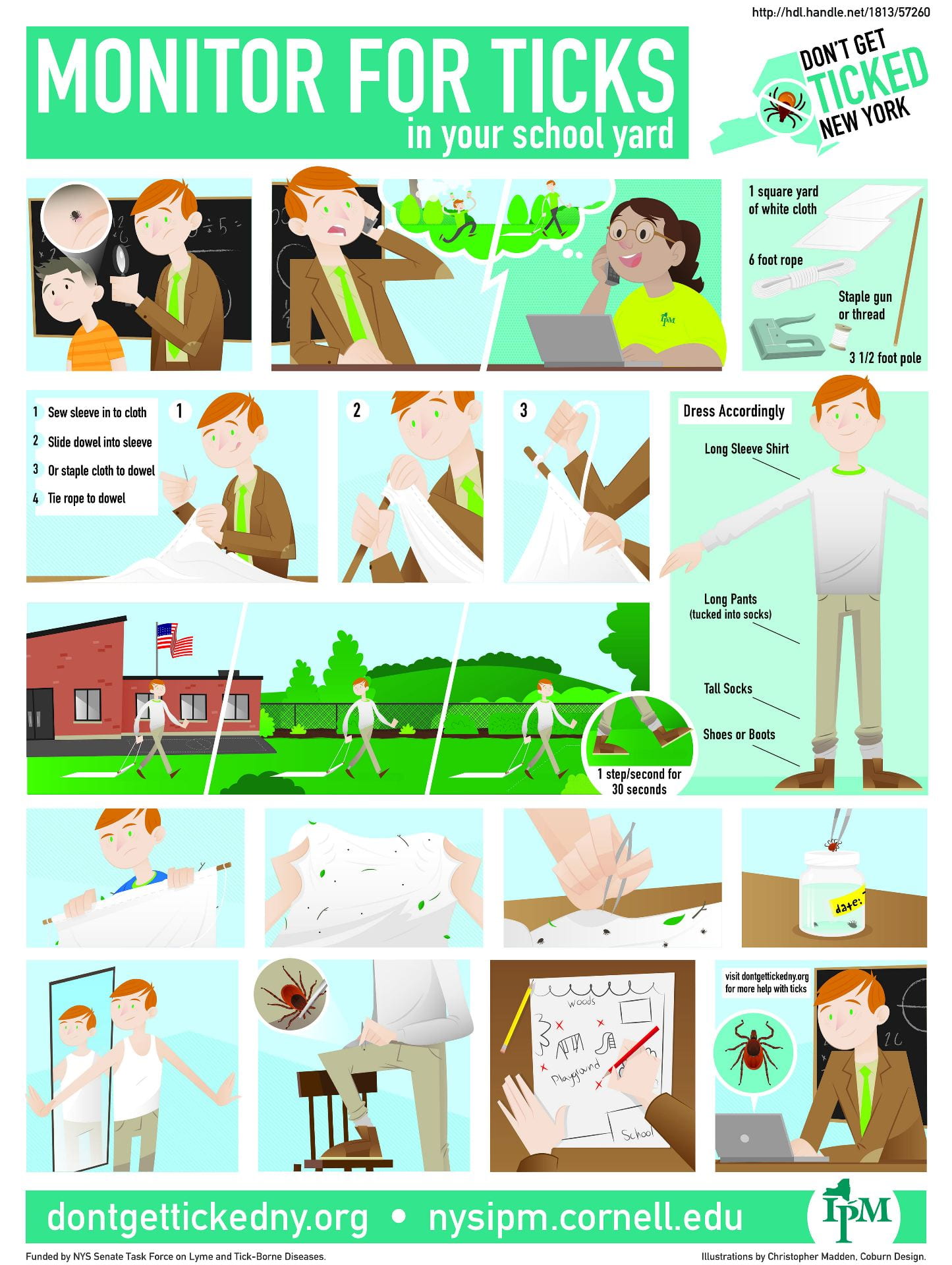Getting Schooled in Tick Management

(Above) Success! With his pants tucked into his socks, and having just assembled his own tick drag mat, workshop attendee Fred Koelbel has a right to feel accomplished. Thanks to the Long Island host district, Three Village—and our training—he’s now ready to reduce the incidence of tick bite risk in his own district.
Ticks are a problem everywhere, but schools are a special concern. We want kids to spend time outside playing sports and enjoying nature. But we want them to be safe too. Did you know that children aged five to nine years old have the highest incidence of Lyme disease? To help protect children at school, we developed a Tick Awareness and Management for Schools workshop that teaches school facilities staff how to assess and mitigate tick risks. Workshop lessons include tick biology and ecology, how to build a drag mat for detecting ticks, and time outside practicing tick survey methods. Managers learn how to reduce kids’ exposure to ticks, and involve teachers and students in the process. First piloted in Suffolk County, the workshop—now offered statewide—continues to improve with participant input.
Think ticks might be a problem on your school grounds? NYSIPM staff offer consultation ns and risk assessments to help schools determine if ticks are present and abundant. So far, 20 schools have been evaluated, and grounds managers discovered how they could reduce risk or limit areas accessible to kids and staff. School nurses and health educators also benefitted from training, thanks to the NYS Center for School Health Seminars that hosted Don’t Get Ticked NY! information booths.
Learning how to keep kids safe and avoid ticks is one lesson school professionals won’t want to miss.

Above: Show and tell. This poster and twelve more like it provide easy-to-understand guidance in the fight against tick-borne disease. Download, print and share. They’re just part of the extensive science-based, well-informed resources on our Don’t Get Ticked New York website, www.DontGetTickedNY.org.
Curious about habitat, repellants, monitoring for ticks, or minimizing risk? You should be. And don’t forget that daily tick check!